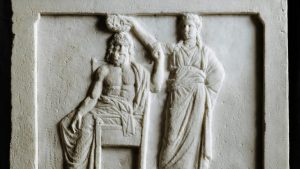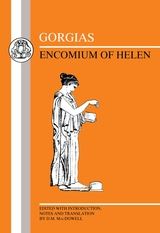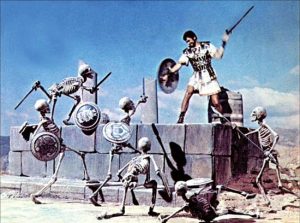In late April of this year my wife Katherine died after a long illness. We in her family loved her so much and we are missing her terribly. She was an extraordinary and very lovely person.
This is why I haven’t posted a blog for a long time.
As I begin to contemplate returning to work in September, I thought I’d use the blog as a way of starting to write academic prose again. But it doesn’t feel appropriate for the first thing I write after Katherine’s death to be just another blog post about ancient and modern political culture (etc.).
In the hope of writing something more fitting, I yesterday turned to ancient Greek and Roman texts which, in one way or another, deal with the themes of loss, mourning and grief.
First, I read some of Cicero’s letters to Atticus, which deal with the loss of his daughter Tullia, in 45 BCE. I don’t think I’ve ever felt more sympathy for Cicero: he has to repeatedly defend his decision to deal with his grief by staying busy with his writing in the country, and out of the public eye. The extent to which Cicero is clearly expected to control his grief and display his fortitude in public discloses the toxicity of male, elite Roman public culture at this time. To be sure, Cicero is engaging in expedient self-fashioning in these letters. And his point that he doesn’t have any current public status or worth to console him seems plain weird to this modern reader – even if it is occasioned by Atticus’ ham-fisted attempts at consolation and ‘bucking-up’. But there’s a substrate of genuine pain seeping between the lines of Cicero’s letters about his daughter and her never-to-be-built public shrine.
Then I re-read Euripides’ tragedy Alcestis. This is the text I want to focus on for the rest of this post.
Alcestis is about a wonderful, smart wife and mother (Alcestis) dying an untimely death and the consequences of that for her husband (Admetus) and children. But if you Google this play, you’ll see that it’s one of those ancient dramas whose premise, plot and patriarchal assumptions render it very ‘unrelatable’ to many a modern reader. And in any case – *spoiler alert* – Alcestis gets brought back from the dead by the hero Heracles.
If only …
On the other hand, the scenes of the play which depict Alcestis’ final day and her last few exchanges with her husband and children do speak to the pathos and pain of losing a loved one in any era. Just one example: when Alcestis returns from his wife’s funeral to his palace, he dreads the emptiness it will disclose to him:
Whatever shall I do?
The emptiness indoors will drive me outside,
when I see my wife’s bed
and the chairs on which she used to sit unoccupied.
The ‘not-being-in-that-chair’ or the ‘not-being-on-that-side-of-the-bed’ which one contantly notices in the days and months after the loss of a loved one, and which can trigger deep emotions of sorrow and emptiness: this is very well observed.
Admetus’ initial pain and sense of loss must have resonated even more, and certainly more widely, with an original ancient audience for whom the untimely death of wives and mums was a much more common occurrence than it is for we lucky moderns who have access to the miracles of modern medicine and healthcare. (That said, our current experience of a pandemic plague has surely led to more such deaths. And I’ve been surprised at how many friends and colleagues have revealed to me that they lost a wife, mum, dad, brother, or sister far too early in relation to late 20th century and early 21st century norms around life expectancy).
Another thing to bear in mind with Alcestis, and as several scholars have noted: it’s partly a play about the way in which expectations and norms around grief and mourning can clash with customary practices of hospitality. Heracles arrives en route to another of his ‘labours’ at Admetus’ palace just after Alcestis’ funeral. Admetus is wearing clothes of mourning, but he pretends that they have just had the funeral of another person, not his wife or a close relative, so that the hero can feel able to accept the king’s offer of bed and board. Admetus later explains this pretence to the play’s bemused Chorus:
It would have been one more misfortune,
on top of those we already have,
for my household to gain a reputation
for turning away guest-friends.
And whenever I pay a visit to thirsty Argos,
I myself find him [i.e. Heracles] the best of hosts.
These strong norms around reciprocal hospitality and ‘guest-friendship’ are a product of an ancient society where long-distance travellers could be in a real bind if they found themselves turned away by a household. Despite these norms, it’s clear that Heracles wouldn’t have stayed the night if he’d known that it was Alcestis who’d died. And yet, Admetus feels that it’s better for his future standing, reputation and his own ‘being-in-the-social-world’ to put Heracles’ needs above his own raw grief. And that prioritizing of hospitality pays off handsomely: Heracles gets Alcestis back from Hades when he learns the truth and wants to do something to make things right.
This all seems a world away from modern norms and expectations. Thank goodness I don’t feel obligated to play host at the moment, unless I really want to.
But this aspect of the play isn’t wholly irrelevant to my current experience either. I really don’t like to appear rude in any circumstances. And I’m normally quite gregarious and hostly. And yet my own and my family’s grief have meant that sometimes we want to see people and sometimes we don’t. Sometimes we want to share our memories of Katherine and sometimes we just want to be on our own with them. Very often, as the novelist Julian Barnes put it in a BBC interview about his own experience of losing his wife, ‘you just don’t know what you want’. That makes it hard to make plans around offering or accepting hospitality.
On the other hand, the great kindness, concern, and generosity shown to me and my family from all quarters in response to our loss surely demand reciprocity and recognition of some kind, at some point. People who are grieving can’t opt out of the necessary reciprocal work which constitutes their community and social networks forever. Indeed, it wouldn’t be in their own best long-term interests to do so. Alcestis explores the importance of such reciprocal obligations at the same time as it acknowledges the difficulty of negotiating your way through them them in times of mourning.
As for its specific depictions of, and observations about, the death and loss of a loved one, the Alcestis is at times a very weird read for someone in my position. Some parts of the text seem deeply insensitive and alien. In the aftermath of his wife’s funeral, for example, Admetus argues that she’s actually better off than he is:
I regard my wife’s lot as happier than my own,
despite appearances. She will never again be touched by pain,
and she has left behind all the tribulations of life in glory,
whereas I, who should not be alive and have escaped my fate,
will live a miserable life. I see this now.
Now, the idea that the dead are at peace and no longer suffering is a familiar theme of consolation in both ancient and modern cultures. It’s especially apposite when the person who died was ill and/or in some pain before they died. Both here and elsewhere in the play, there’s a further point adumbrated which most of us can ‘get’: when people of good character and deeds die, the memory and ‘glory’ of who they were, how great they were, and what good things they did, lives on through the memorializing words and work of the living.
But the claim that Alcestis’ ‘lot’ (at the point that she is thought to have died forever) is better than Admetus’ is one which serves to remind me that the ‘thought world’ of ancient Greek texts and culture is often very different to that of ours (or to mine, at least). Even as an exaggerated ‘in the moment’ expression of one’s grief, it seems beyond the pale to me for Admetus to suggest that he’s worse off than his dead wife.! This would remain true even without the specific plot point that his wife Alcestis has agreed to die in place of Admetus – an arrangement made possible by Apollo which Admetus now bitterly regrets going along with. The advantages of cheating his fated death turn out to be illusory.
The idea that the dead are better off than the living loved ones they leave behind coheres with another thought which Admetus comes out with elsewhere in the play, and which grieving characters and Choruses often express in Greek tragedies: namely that it would have been better never to have even met and married the husband or wife who you’ve just lost in the first place. Mothers and fathers in Greek tragedy sometimes wish they’d never given birth to the child they are now mourning the death of. And it’s a thought which goes back to Homer’s Iliad: when she learns that husband Hector has been killed by Achilles, Andromache explictly says that she wishes that she’d never even been born.
These thoughts are perhaps understandable as articulations of the extreme pain of grief: it’s so unbearable that you wish for another possible world in which the conditions of the possibility of the relationship you’ve now lost were never even met in the first place. And it would be wrong of me to claim that this kind of thinking is alien to modern experience just because it’s alien to me. After all it’s right there in one of the most famous modern popular songs of all time: ‘I sometimes wish I’d never been born at all’, sings the late, great Freddie Mercury on Queen’s classic hit, Bohemian Rhapsody. But my version of this ‘wishing things were otherwise’ is crucially (if boringly) different. Never at any point do I, or did I, wish I’d never met and married my wife. What I wish is that she hadn’t fallen ill and died.
So, it seems so shocking to me, right now, to hear a Greek epic or tragic character or chorus wish that they had never married the dead spouse or had the dead son or daughter. How could one want to erase one’s timeline with the person one loved and whom one now misses so much? Surely the present pain is an indicator of what was precious about that timeline, and what it has provided in the way of past happiness and future happiness (via children, memories, achievements etc.)?
But one does have to reflect that in ancient Greek culture, and especially for ancient Greek women, the loss of their relative could be much more radically life-changing for the grieving survivor than it is for we moderns in liberal and relatively affluent situations. If you are dependent on a spouse or a grown-up child for your own economic well-being, personal safety, and social inclusion, then it becomes more understandable that their death might make you wish you could erase your current timeline altogether.



 Johnson is the only main party leader who has not done an in-depth long-format interview with the BBC’s veteran political journalist Andrew Neil. It seems that the BBC went ahead with this series of interviews because it understood that Johnson would indeed sit down with Neil for a televised grilling, just as the other leaders have now done. But the BBC never managed to get Johnson to agree a time and date for the interview. And with less than two days to go before the polls open, Johnson is saying that he will not do the interview before the General Election. In response, Andrew Neil did an extraordinary piece to camera. Neil highlighted the atypicality and political significance of Johnson’s refusal to sit down with him:
Johnson is the only main party leader who has not done an in-depth long-format interview with the BBC’s veteran political journalist Andrew Neil. It seems that the BBC went ahead with this series of interviews because it understood that Johnson would indeed sit down with Neil for a televised grilling, just as the other leaders have now done. But the BBC never managed to get Johnson to agree a time and date for the interview. And with less than two days to go before the polls open, Johnson is saying that he will not do the interview before the General Election. In response, Andrew Neil did an extraordinary piece to camera. Neil highlighted the atypicality and political significance of Johnson’s refusal to sit down with him:




 Around this time last year I was asked by the award-winning playwright, director and screenwriter
Around this time last year I was asked by the award-winning playwright, director and screenwriter  to one side as the trial becomes a foundational, celebratory moment, both for the Athenian democratic state and the institution of the rule of law. In 462 BC, only four years before The Oresteia was performed in Athens, a politician named Ephialtes had managed to strip the age-old Areopagus council of its aristocratic character and influence, thereby removing the last barrier to the establishment of a genuinely radical democracy for the city – albeit a ‘radical democracy’ that had no place for women and saw nothing wrong with slavery. However, the Areopagus council retained its traditional role as a court dealing with homicide cases and religious crimes. In The Kindly Ones this is the purely juridical institution which Athena invents in order to hear Orestes’ case. Aeschylus’ staging of a historic shift from ‘do-it-yourself’ retaliatory justice to a jury system also entails that the fearsome Furies be welcomed into Athena’s city. These ancient, once-reviled enemies of the Olympian gods will now be venerated as friendly deities; and although they will no longer have the power to terrorize murderers, they are to remain potent symbols of the importance of familial and civic harmony.
to one side as the trial becomes a foundational, celebratory moment, both for the Athenian democratic state and the institution of the rule of law. In 462 BC, only four years before The Oresteia was performed in Athens, a politician named Ephialtes had managed to strip the age-old Areopagus council of its aristocratic character and influence, thereby removing the last barrier to the establishment of a genuinely radical democracy for the city – albeit a ‘radical democracy’ that had no place for women and saw nothing wrong with slavery. However, the Areopagus council retained its traditional role as a court dealing with homicide cases and religious crimes. In The Kindly Ones this is the purely juridical institution which Athena invents in order to hear Orestes’ case. Aeschylus’ staging of a historic shift from ‘do-it-yourself’ retaliatory justice to a jury system also entails that the fearsome Furies be welcomed into Athena’s city. These ancient, once-reviled enemies of the Olympian gods will now be venerated as friendly deities; and although they will no longer have the power to terrorize murderers, they are to remain potent symbols of the importance of familial and civic harmony.

